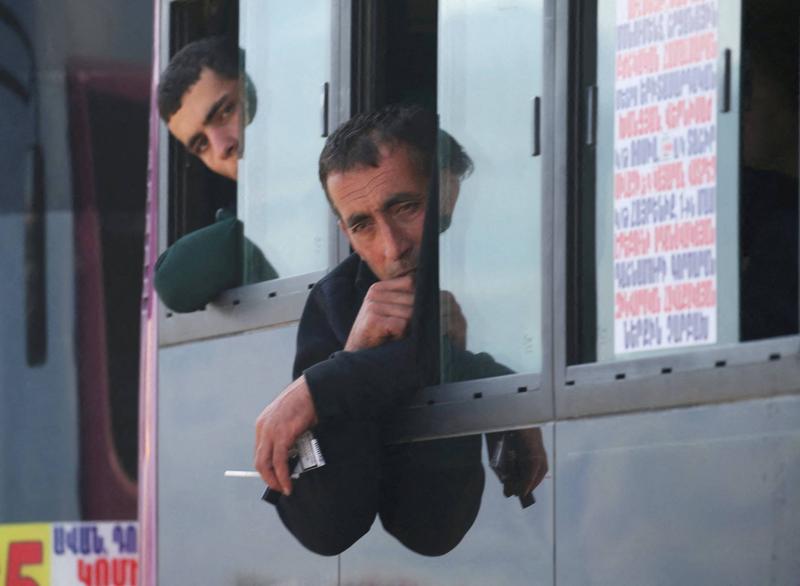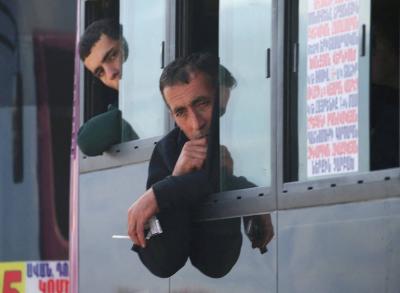A United Nations mission arrived in Nagorno-Karabakh today, Sunday, marking its first presence in the region in nearly 30 years, amid ongoing displacement of Armenians following a swift Azerbaijani military attack last month. The World Health Organization (WHO) reported that 100,000 Armenians from Nagorno-Karabakh have fled to neighboring Armenia. Armenian government spokesperson Nazli Baghdasaryan announced that more than 45,000 displaced individuals from the region have been accommodated.
Baghdasaryan stated at a press conference today, "So far, 100,483 people have reached Armenia, and temporary housing has been provided for 45,516 displaced individuals." She added that 84,408 displaced persons have been registered, noting a significant decrease in their influx. Hans Henri P. Kluge, the WHO Regional Director for Europe, indicated in a statement that they have "activated our emergency systems, and we will send experts to the country from various specialties, including mental health, burn treatment, basic health services, and emergency coordination after a comprehensive needs assessment." He emphasized that "the challenges are truly immense, and we are there to do everything we can."
The mission is led by a senior UN aid official and is the first international organization's presence in the area since the early 1990s. Armenia has requested that the International Court order Azerbaijan to withdraw all its forces from civilian facilities in Nagorno-Karabakh and permit the United Nations to enter the region. In February, the International Court of Justice ordered Azerbaijan to ensure freedom of movement through the Lachin corridor leading in and out of the area.
Pope Francis urged Azerbaijan and Armenia to engage in talks to restore peace, adding that the region is suffering from a humanitarian crisis. During today's mass, he expressed, "I have been following the tragic situation of the displaced in recent days, and I renew my call for dialogue between Azerbaijan and Armenia in the hope that discussions between the parties will lead to a lasting agreement that puts an end to the humanitarian crisis."




